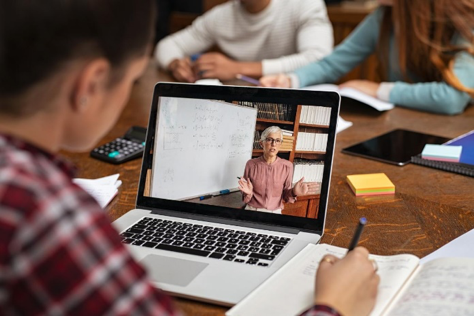There have been many positive things to come from the closing of in-person activities due to the pandemic. More family time, openings in our schedules, time for daily walks around the block, the initiation of new family game nights, and eating meals together at home every night instead of families running in three different directions.
But there is one aspect that has not been quite as positive; the social isolation many kids are feeling and learning loss associated with virtual learning. To be clear, schools are not closed. In fact, teachers and students are working harder and longer hours now than they ever have. However, there are barriers presented by virtual learning that may require extra effort to overcome.

Students report they are missing the in-person discussion, the personal relationships with teachers and peers, as well as the ability to just “hang out” and be kids in a school setting. Think about how many hallway conversations occur between classes. That quick chat with a friend might be just enough to change the feeling of the day for some.
The social isolation that many are feeling is real and could have an impact on their ability to function in group settings in the future. When asked about her opinion of online learning, a 7th grade student at Mendenhall Middle School stated, “It’s really hard to hangout with friends and school has been hard because of the distractions. Going back to school is probably going to be the biggest struggle for me personally because I haven’t seen my friends in over a year and I feel like the bond with friends I did have in school won’t be there anymore.”
Some ways to help reduce this burden of social isolation could be involvement in community sport leagues, virtual play dates, and the inclusion of weekly “friend check ins”. Encourage your students to call or facetime their friends instead of just texting or to become pen pals and send written letters or art work back and forth. Allow students to take a break from the computer and recommend they collaborate with peers as much as they can during the week. Students can request that teachers schedule a virtual meeting/hang out time with a small group of their peers to have some relaxed play with virtual games. They can also request small group virtual meetings to collaborate on school work and projects with peers. Creating supportive environments now will make the transition back to in-person learning easier.
In February 2021, Guilford County Schools reported end of semester test scores in multiple courses dropped by as much as 18.7% compared to the previous year (Hatchett, 2/10/21). Students are still required to attend live virtual classes, complete homework, and work collaboratively. However, access to technology, help at home while families are working remotely, and the comfort with teachers are just a few reasons many students are falling behind. Many students also are hesitant to speak on camera, which results in lost opportunities to ask questions and misunderstanding of instructions. Although students are meeting synchronously with teachers, many older students feel they are not building meaningful relationships and that their teachers don’t even know who they are. A junior from Page High School stated, “It is especially challenging to connect with teachers through virtual learning which makes asking questions intimidating and disconnected due to the lack of class participation from other students and limited interactions.”
Now, more than ever before, parents need to be advocates for their children during this challenging time. Suggestions to help combat this learning loss include encouraging your students to schedule one-on-one virtual meetings with teachers and to seek the study sessions when they do return in-person. Utilizing tutors as needed can help students with adapting to the platforms they are learning on. At home, designating a family “study time” away from screens can help students ask those questions they might have and are hesitant to ask their teachers or peers in the virtual world. Home study sessions can also increase communication as students work through school activities and assignments with siblings or other family members. Encouraging students to talk about what they are learning during mealtimes can show them they are synthesizing and understanding the academic content they are learning.
UNC Greensboro Speech and Hearing Center also offers services for students who may be falling behind due to virtual learning. Our speech-language pathologists are trained in developing both oral and written language skills needed for academic success. If you think your child could benefit from additional support to help combat learning loss, contact us today. We offer both in-person and virtual services. Find your support here!